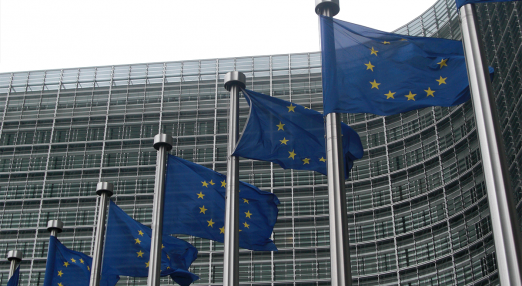Filter resources
-

A losing game: moderating online content fuels Big Tech power
While online platforms have a role to play in dealing with systemic risks, holistic - not techno-centric - approaches are needed to guarantee our safety and free expression, argues Claire Fernandez
Read more
-

Final push needed for a strong ePrivacy Regulation
Today EDRi and 17 civil rights organisations reiterate our support for the much-needed efforts to upgrade Europe’s ePrivacy legislation.
Read more
-

Big Tech platforms are hurting us. 50 organisations urge the EU to #FixAlgorithms
The list of negative consequences of how dominant online platforms shape our experience online is neither short nor trivial. From exploiting users’ vulnerabilities, triggering psychological trauma, depriving people of job opportunities to pushing disturbing content to others, these are just some examples. While members of the European Parliament debate their position on the Digital Services Act (DSA), EDRi’s member Panoptykon Foundation (Poland), together with 49 civil society organisations from all over Europe, including EDRi, Amnesty International, Article 19, European Partnership for Democracy and Electronic Frontier Foundation, urge them to ensure protection from the harms caused by platforms’ algorithms.
Read more
-

What’s up with WhatsApp encrypted backups
WhatsApp is rolling out an option for users to encrypt their message backups, and that is a big win for user privacy and security. The new feature is expected to be available for both iOS and Android “in the coming weeks.” EDRi's member Electronic Frontier Foundation (EFF) has pointed out unencrypted backups as a huge weakness for WhatsApp and for any messenger that claims to offer end-to-end encryption, and we applaud this improvement. Next, encryption for backups should become the default for all users, not just an option.
Read more
-

Human rights focus missing in the State of the Union 2021 address
On 15 September, the yearly State of the Union 2021 address took place. The address is the event where the European Commission evaluates the preceding year and the Commission President announces key legislation or reactions to crucial international events.
Read more
-

Biometric ‘permission to travel’ scheme in Borders Bill will affect tens of millions of people
The attack on the asylum system proposed by the UK government in the Nationality and Borders Bill has provoked outrage. However, the Bill also includes proposals to introduce an electronic 'permission to travel' scheme that would involve gathering biometric and other data from tens of millions of people. The UK Parliament's Joint Committee on Human Rights (JCHR) is conducting legislative scrutiny on the Bill. EDRi's member Statewatch submitted written observations to the inquiry last week.
Read more
-

EDRi-gram, 22 September 2021
In this EDRi-gram, we challenge the technical ‘debiasing’ as the main solution to AI-driven structural inequality and call on policymakers to tackle the root causes of the power imbalances caused by the pervasive use of AI systems. We also look at how Big Tech platforms are harming users and join forces with EDRi's member Panoptykon Foundation, along with 49 civil rights organisations, to urge the EU to empower users and ensure effective oversight of algorithms in their amendments to the Digital Services Act.
Read more
-

Register research turned privacy disaster. Epicenter.works nominates Sebastian Kurz for a Big Brother Award
Research is important. Using research as a cover to obtain unchecked access to sensitive official data is not. At the beginning of July, the Austrian chancellor, Sebastian Kurz, submitted to pre-parliamentary consultation a bill that would cause a seismic shift in how the government treats its citizens’ data. EDRi's member epicenter.works shares that from a privacy perspective the present bill is fundamentally flawed and places an enormous amount of data covering the entire population at risk for abuse.
Read more
-

Eurodac: Council seeks swift agreement on expanded migrant biometric database
The Slovenian Presidency of the Council is planning to accelerate negotiations on a vast expansion of the Eurodac database, which will hold sensitive data on millions of asylum seekers and migrants in an irregular situation, by 'delinking' the proposed rules from other EU asylum and migration laws under discussion.
Read more
-

Booklet: If AI is the problem, is debiasing the solution?
The development and deployment of artificial intelligence (AI) in all areas of public life have raised many concerns about the harmful consequences on society, in particular the impact on marginalised communities. EDRi's latest report "Beyond Debiasing: Regulating AI and its Inequalities", authored by Agathe Balayn and Dr. Seda Gürses,* argues that policymakers must tackle the root causes of the power imbalances caused by the pervasive use of AI systems. In promoting technical ‘debiasing’ as the main solution to AI driven structural inequality, we risk vastly underestimating the scale of the social, economic and political problems AI systems can inflict.
Read more
-

Intensified surveillance at EU borders: EURODAC reform needs a radical policy shift
In an open letter addressed to the European Parliament Civil Liberties, Justice and Home Affairs Committee, 34 organisations protecting the rights of people on the move, children and digital rights including European Digital Rights (EDRi) urge policymakers to radically change the direction of the EURODAC reform – the European Union (EU) database storing asylum seekers’ and migrants’ personal data - in order to respect fundamental rights and international law.
Read more
-

EDRi-gram, 8 September 2021
In the first post-summer edition of the EDRi-gram, we are excited to announce EDRi's new staff members who have recently become part of the team. Join us in welcoming Fenya Fischler, who will be our Membership and Community Officer & Belén Luna, our new Campaigns Officer! We are also celebrating a big milestone in our signature collection to ban biometric mass surveillance as 60 000 people have signed the #ReclaimYourFace petition (hurray)
Read more
